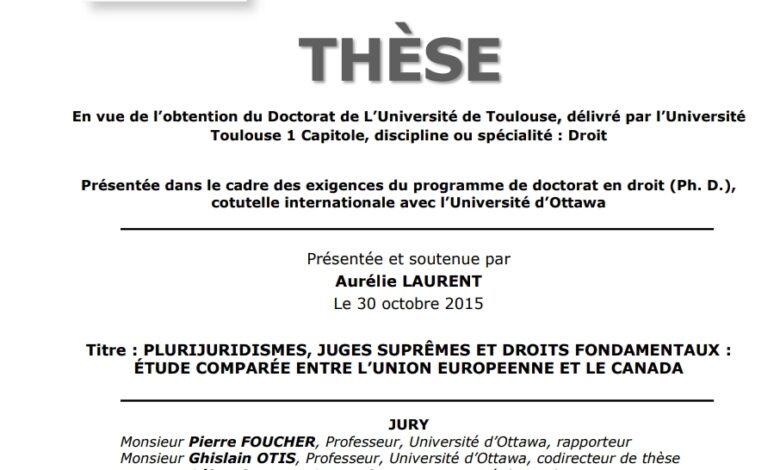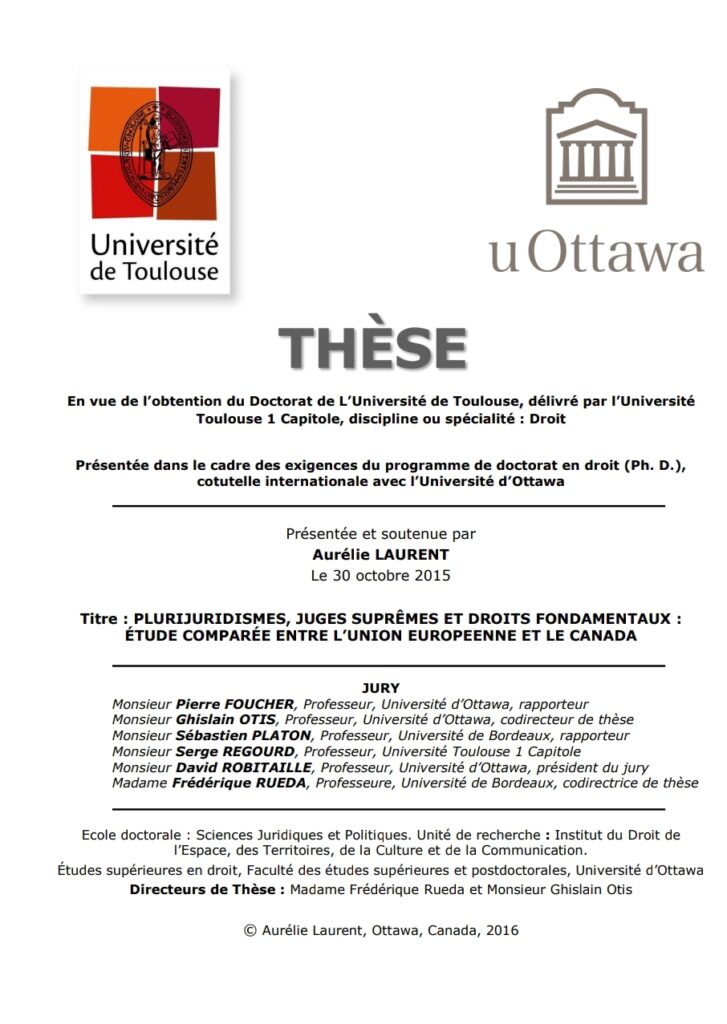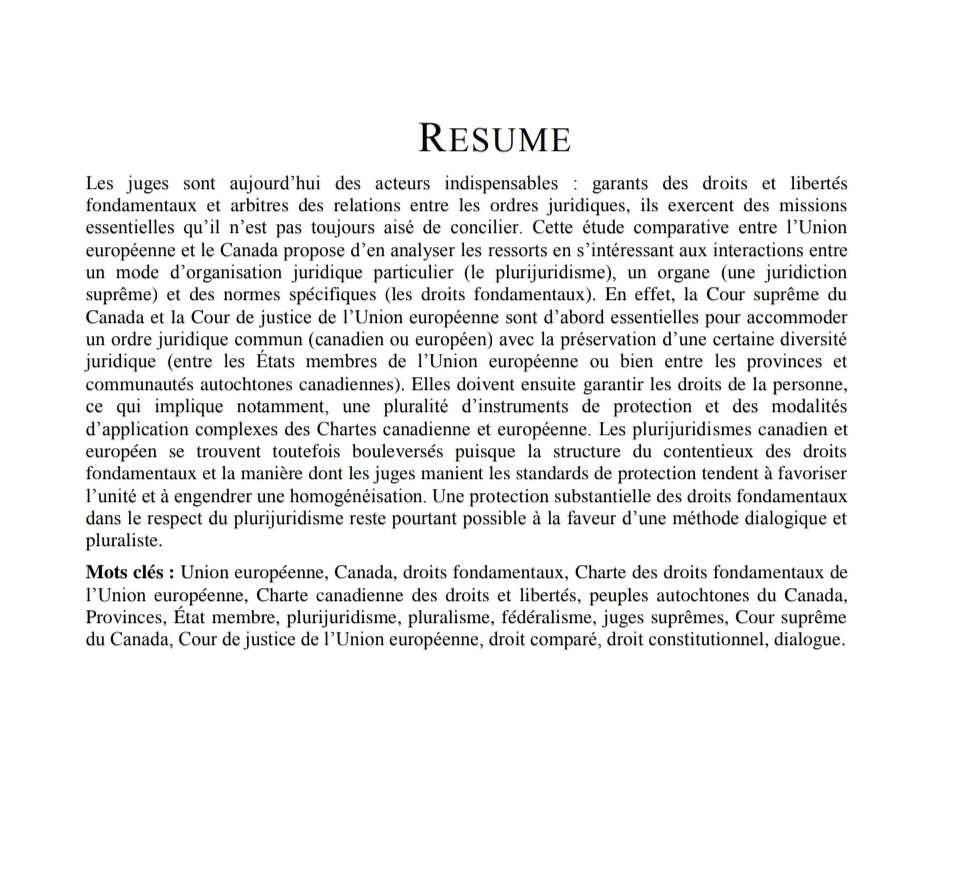
PLURIJURIDISMES, JUGES SUPRÊMES ET DROITS FONDAMENTAUX :
ÉTUDE COMPARÉE ENTRE L’UNION EUROPEENNE ET LE CANADA
DROITS FONDAMENTAUX


ABSTRACT
Nowadays judges are indispensable actors: as guardians of fundamental rights and freedoms and as arbiters of the relationships between legal systems.
They perform essential tasks which are not
always easy to reconcile.
This comparative study between the European Union and Canada is a depth analysis of interactions between a specific way to organise law (“multijuralism”), a body (asupreme court), and specific rules (human rights).
Indeed, the Supreme Court of Canada and the European Court of Justice are essential to accommodate a common legal order (in Canada or in the European Union) with the preservation of a certain legal diversity (between the Member States of the European Union, or between the provinces and the Indigenous communities of Canada).
Then, they must ensure human rights, which involve a multilevel protection and complex ways to implement Canadian and European charters.
However European and Canadian
multijuralisms are modified since the structure of the human rights litigation and the way judges handle standards of protection tend to favor the unity and lead to homogenization. Nonetheless, substantial protection of fundamental rights in respect of multijuralism remains possible, as far as a pluralist and dialogical method is followed.
Keywords: European Union, Canada, Human Rights, Charter of Fundamental Rights of the
European Union, Canadian Charter of Human Rights and Freedom, Indigenous Peoples of
Canada, Provinces, Member State,Multijuralism, Pluralism, Federalism, Supreme judges, Supreme court of Canada, European Court of Justice, Comparative law, Constitutional Law,
Dialog
pour télécharger PDF cliquez ici
